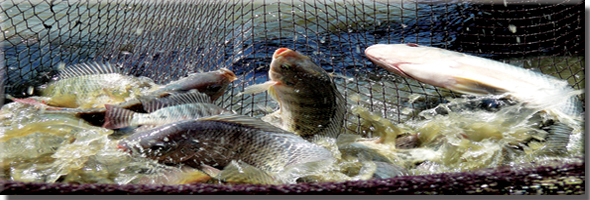Paul Icamina

A very good and affordable source of protein is swimming into the cold climate of the Cordillera heartland.
The Philippine Council for Agriculture, Aquatic and Natural Resources Research and Development (PCAARRD), Department of Science and Technology, has approved a P4.1-million grant to determine the best strain of tilapia suited for the Cordilleras.
Tilapia is an affordable source of protein, vitamins, minerals and essential fatty acids. It is currently cultured in fish terraces similar to the rice terraces; however, the cold climate is not the best condition for growing the warm water species.
The Cordilleras is hungry for more fish, so much so that dried fish is a premium commodity in the high mountains, especially in times of typhoons when landslides shut down roads and the fish supply.
PCAARRD puts the level of fish sufficiency in the Cordilleras at 8 percent. That is way too small in a place where fish consumption is 28 kilograms per person per year.
Next to milkfish, tilapia is the country’s second most important food fish, according to the Bureau of Fish and Aquatic Resources (BFAR). The Philippines is the world’s fourth largest producer of tilapia.
The gap is filled largely by fish imported from nearby Pampanga and as far as Batangas. Thus, increased production of tilapia is expected to help bridge the supply-demand gap for fish and fishery products in the Cordilleras.
The use of genetically improved strains offers promising prospects for better performance during tilapia culture, according to PCAARRD scientists.
Dr. Ruth Diego, aquaculture scientist of the Benguet State University (BSU), will lead the research team that will evaluate and identify the best performing strain of Nile tilapia under the cool climate of Benguet, Ifugao, Kalinga and Mountain Province.
The four strains are Genetically Improved Farmed Tilapia (GIFT), Genetically Enhanced Tilapia with Excellent Qualities (GET-EXCEL), Freshwater Aquaculture Center Selected Tilapia (FAST) and a locally grown tilapia. They will be grown in ponds during the wet and dry seasons in these provinces.
Dr. Rene Pinkihan of Ifugao State University and Dr. EpiphaniaMaquilang of the Mountain Province State Polytechnic College are cooperating with BSU to conduct the field trials for a year and a half.
GIFT is the first tropical aquaculture species to undergo genetic improvement based on selective breeding programs for salmon and trout established in Norway in the 1970s.
Selective breeding chose the parents of the next generation to improve performance for certain traits considered important during production and marketing.
In the GIFT method, tilapia is reared in separate enclosures until they are big enough to be tagged with a microchip that allows researchers to identify individual fish and track their growth in a bigger communal pond. An improved strain is adapted and multiplied.
The first generation of GIFT was bred to grow fast and survive well, the two desirable traits in production. Fast-growing fish reach harvestable size quicker, enabling faster restocking and cost-effective production.
An improved strain of tilapia grew up to 85 percent faster. From the Freshwater Aquaculture Center of the Central Luzon State University in Muñoz, Nueva Ecija, seeds of the highly productive strain were given to the Philippines, Bangladesh, China, Thailand and Vietnam.
GIFT and GIFT-derived strains now account for 68 percent of tilapia production in the Philippines.
The first generation GIFT came from wild Nile tilapia sourced in Egypt, Ghana, Kenya and Senegal and farmed Nile tilapia from Israel, Singapore, Taiwan and Thailand. The GIFT strain is now in its 14th generation.
GET-EXCEL tilapia uses a superior breed which has an advantage of 38.12 grams in growth and 10 percent increase in survival compared with other improved commercial strains of tilapia. The technology uses family selection and rotational mating scheme.
FAST is another name for new breeds of fast-growing, better-surviving tilapia bred at the Freshwater Aquaculture Center.




